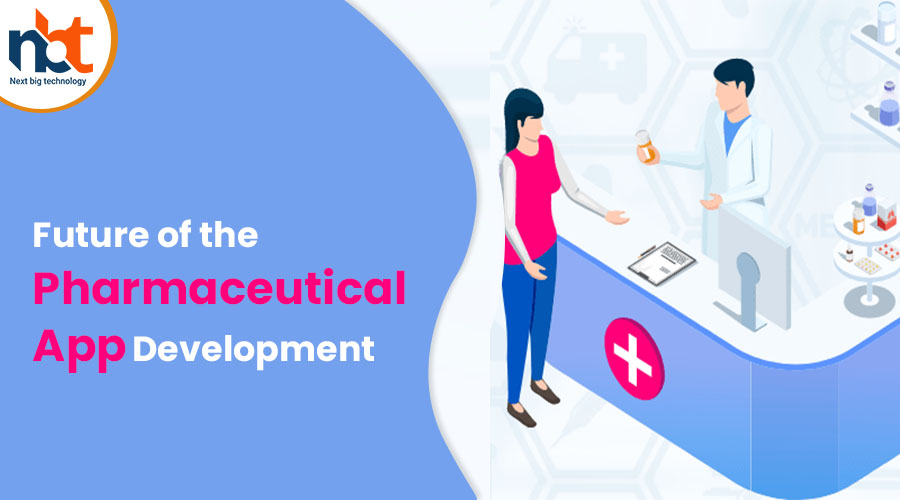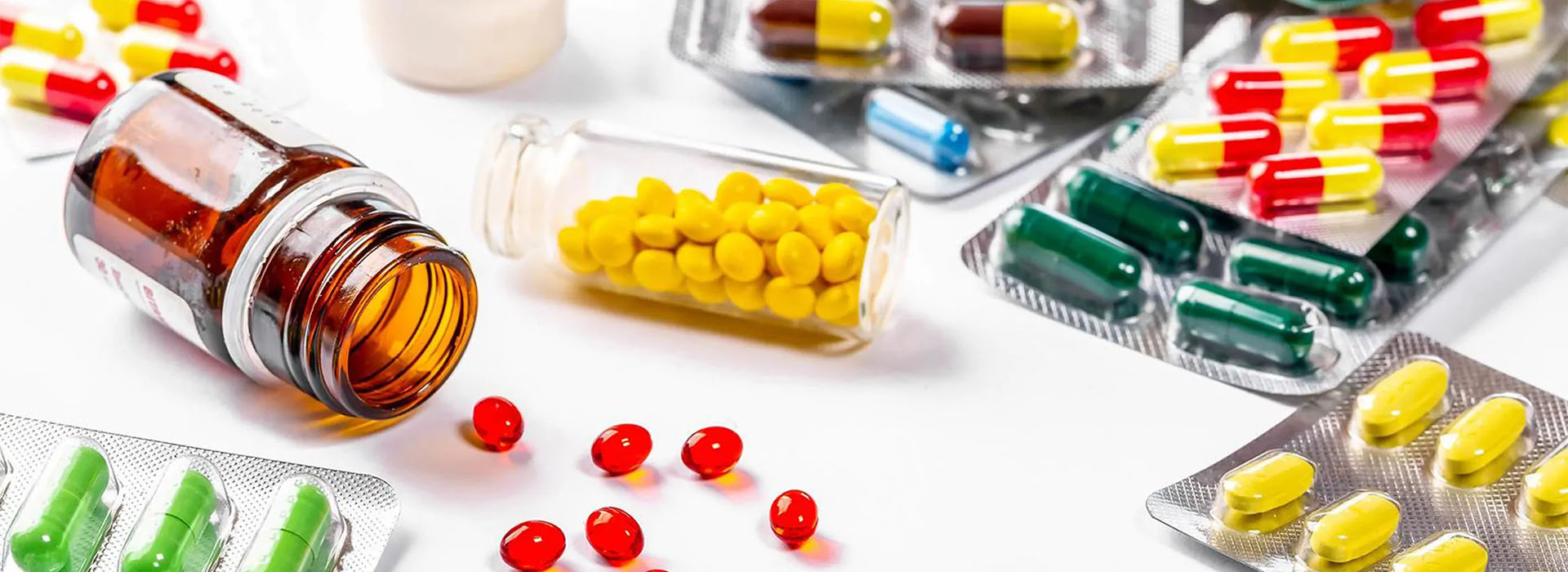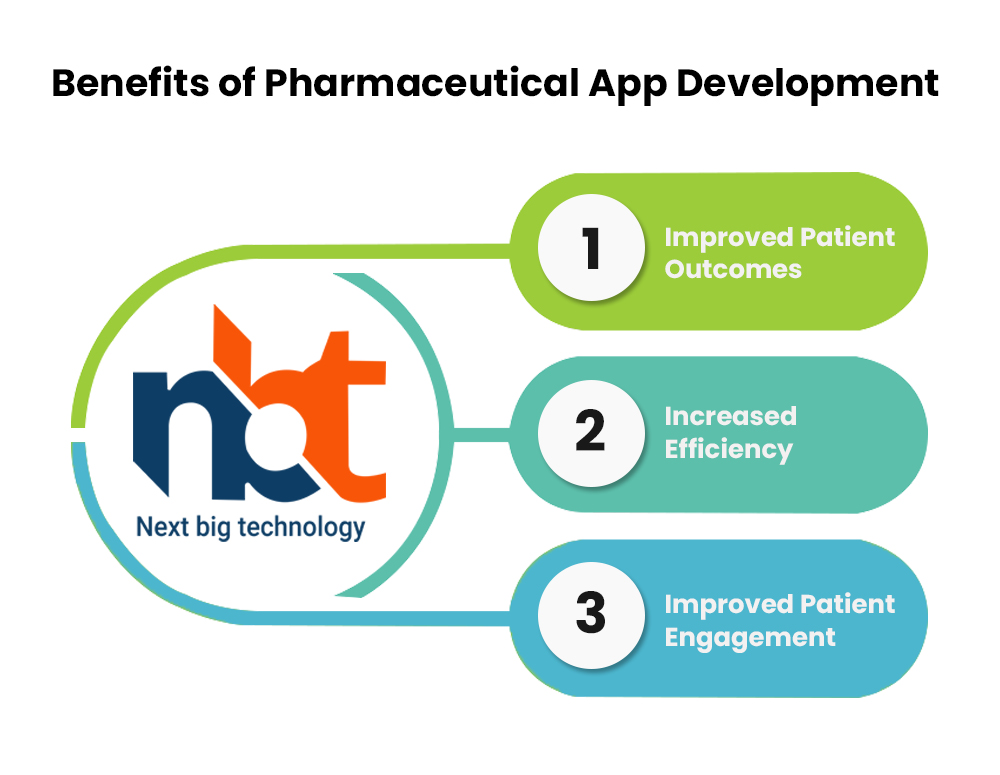Advanced technology has been essential in bringing about significant developments in patient care in the dynamic healthcare sector. Due to the increasing popularity of smartphones and mobile apps, pharmaceutical companies are now creating their own applications to improve patient well-being and promote better engagement with healthcare professionals. The creation of a pharmaceutical mobile application can bring numerous benefits, including heightened patient involvement and improved communication with medical professionals, among others. This article will explore the process of developing a pharmaceutical application and the extensive advantages it can provide to the medical field.
Table of Contents
Future of the Pharmaceutical App Development
With the growing demand for digital healthcare services, the demand for pharmaceutical apps is anticipated to increase. Grand View Research projects that the global market for digital health will rise to USD 511.81 billion by 2027, citing rising internet and smartphone usage as key development factors. Pharmaceutical apps are predicted to have a significant impact on this expansion.
One of the vital areas where pharmaceutical applications are expected to exert a noteworthy impact is in the sphere of clinical trials. In recent years, pharmaceutical companies have been increasingly utilising digital technology to carry out clinical trials. To achieve this, applications are being developed that empower patients to engage in clinical trials from a remote location, thereby lessening the necessity for them to visit healthcare facilities in person. This not only simplifies patients’ involvement in clinical trials but also diminishes the costs related to conducting clinical trials.
The implementation of pharmaceutical technology in individualised medical care has the potential to bring about a remarkable transformation in the healthcare sector. Through the accumulation and analysis of patient wellness information, pharmaceutical software can devise bespoke treatment strategies that are tailored to meet the specific needs of each patient. This approach can elevate patient outcomes and satisfaction levels as it ensures that treatment approaches are in accordance with individual health conditions. Therefore, the personalised medical treatment domain is ideally positioned to reap significant benefits from the use of pharmaceutical applications.
Read More : Pharmacy App Development Services
Common Types of Pharmaceutical Apps
Medication Reminder Apps
Applications designed for medication reminders have been created to assist individuals in enhancing their drug regimen management. Utilising these cutting-edge applications, users are armed with prompt notifications to take their medication as prescribed. Furthermore, these apps can be employed to assess the efficacy of medications and keep track of adherence to medication schedules.
Also Read : Essential cost and features to develop an online medicine delivery app
Health Monitoring Apps
Applications designed for health monitoring offer users the opportunity to oversee their well-being from a remote location. These particular programme possess the ability to track crucial indicators such as heart rate and blood pressure. It is noteworthy to mention that asthma and diabetes are just two of the many chronic illnesses that these programme can monitor.
Also Read : Healthcare-Medical Mobile Apps – Types, Benefits & Development
Telemedicine Apps
Applications for telemedicine make virtual consultations between patients and medical staff possible. These software programmes can diagnose and cure minor medical ailments, as well as offer post-hospital discharge follow-up care for patients.
Also Read : A Complete Guide to Developing On-demand Medicine Delivery App
Benefits of Pharmaceutical App Development
Pharmaceutical app development has several benefits for patients and healthcare professionals. Some of the key benefits of pharmaceutical app development include:
Improved Patient Outcomes
Pharmaceutical applications possess the capability to amplify the management of patients’ wellness through the provision of superior surveillance, tracking of adherence, and tailored therapy schemes. If utilized optimally, it can lead to greater customer satisfaction.
Increased Efficiency
Pharmaceutical applications possess the potential to augment healthcare professionals’ efficiency by enabling them to gather and retrieve patient health data. This acquired data can be utilized to formulate customized treatment schemes, resulting in a more efficient allocation of healthcare resources and reduced healthcare costs.
Improved Patient Engagement
The utilisation of pharmaceutical applications has the ability to elevate patient involvement by granting them easy access to healthcare facilities, as well as enabling them to keep an eye on their health status from a remote location. Thus, it can lead to elevated levels of patient satisfaction and increased patient loyalty.
Also Read : Essential cost and features to develop an online medicine delivery app
Steps to Develop a Pharmaceutical App
Developing a pharmaceutical app requires careful planning while considering various factors. You need to keep in mind the regulatory requirements to make sure your pharmaceutical application complies with the rules and regulations to avoid heavy penalties.
Define the Purpose of the App
A crucial component of developing an app is identifying its purpose. Who is your target audience? What specific problems do you wish to solve with the app? What features do you need to incorporate to address those issues? Answering such questions will help you avoid confusion later on. It is important to have a plan before investing a penny.
Develop a Prototype
Once you have clearly defined the purpose of your pharmaceutical app, the next step would be to create a prototype, also known as a Minimum Viable Product. This initial version of your application will comprise a limited set of basic features, which will allow you to evaluate the viability and functionality of your app.
Test and Refine the App
Once the MVP has been developed, it requires thorough scrutiny and refinement. The meticulous process of scrutinizing involves identifying any discrepancies, bugs, or issues that may disrupt the seamless user experience. It is imperative to address these issues with the utmost precision and diligence before the final release of the pharmaceutical app.
Launch the App
Once the app has been tested and all the bugs have been removed, it can be launched on the app store. Simply launching your pharmaceutical app won’t help make it successful. You should regularly update the app to keep it up-to-date and retain consumers.
Also Read : What are the Major Benefits of Telemedicine App Development?
Conclusion
The development of pharmaceutical apps has had a tremendous impact on the healthcare industry. The way patients access healthcare services and remotely manage their medical issues is being revolutionized by these apps. Additionally, they are boosting the effectiveness of healthcare services and lowering associated costs, providing significant advantages to both patients and healthcare professionals. Pharmaceutical app development has a tone of potential, and pharmaceutical firms must utilize digital technology to be competitive.
Thanks for reading our post “Pharmaceutical App Development : Complete Guide”. Please connect with us to know more about Pharmacy App Development.












